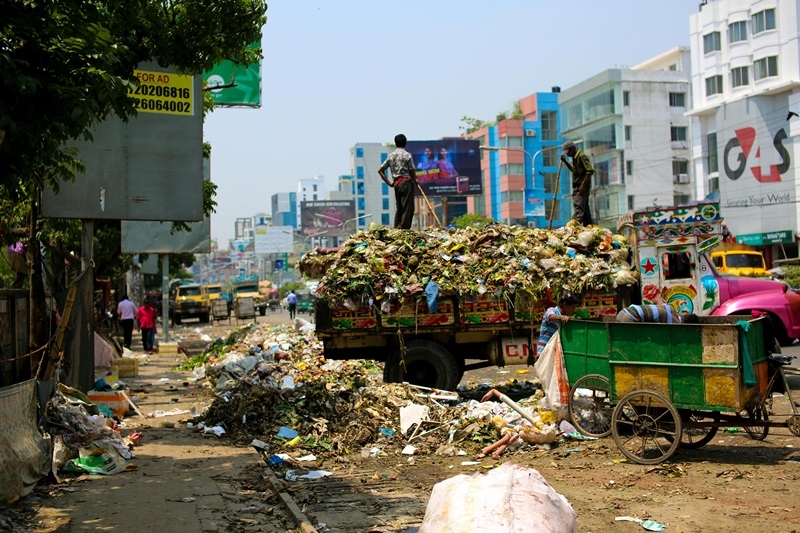- JICA, Milestone School sports festival to support students’ emotional recovery |
- Bangladesh gold market breaks record as prices hit Tk 2.57 lakh per bhori |
- Joint forces' drive for 'silent zone' around Airport: 94 cases filed |
- Al-Arafah Islami Bank to suspend all services for 9 days starting Jan 30 |
- Bangladesh GDP to Grow 5% in 2026 Amid Rising Price Pressures |
Inclusive governance in climate funds urged

Inclusiveness in the climate fund is crucial, ensuring all affected communities have access to finance and decision-making. Photo Kelly-Pexels
As the second meeting of the UN Climate Change (UNFCCC) Board of the Loss and Damage Fund (LDF) resumes today in South Korea, we are raising concerns about public participation and integrity monitoring in climate finance.
The fund started its operations at COP28 to help developing countries that are hit the hardest by climate change. It covers both economic and non-economic losses resulting from extreme weather events and slow-onset events like sea-level rise, long-lasting heatwaves, desertification, the acidification of the sea, species extinction and crop failures. Developed countries, historically responsible for producing the most emissions, must bear the costs for loss and damage and this has been one of the several burning issues at UN climate talks.
The fund aims to be inclusive to ensure that the voices of those most affected by climate change can shape the future of international climate policies. Towards this end, a few small positive steps have been taken. Membership of the LDF is made up of 12 developed country parties and 14 developing country parties. In addition, during this week’s meeting, the Philippines has been chosen to host the board of the fund, which is likely to increase focus on the Asia Pacific region, where many countries are facing the impact of climate change with limited resources.
It is crucial to prioritise inclusiveness as the LDF comes to life. No one should be left behind, local communities, marginalised groups, and even fragile states. Those most impacted should have access to finance and be involved in decision-making processes. This is why the fund’s administrators need to engage with communities on the ground. However, as these groups are at times affected by displacement or conflict or are unable to travel to an event such as this due to financial or documentation reasons, their perspective may be missing from the agreed outcomes.
As we have previously highlighted, when public participation is lacking in climate funds and financing processes, corrupt actors begin to thrive, diverting funding from its intended use. Unfortunately, it remains still unknown how affected countries will be able to claim money for loss and damage. This lack of transparency in climate financing processes limits opportunities for public engagement and, as a result, communities are inadequately consulted or involved in projects that should address their needs and priorities.
Public oversight of climate financing is key, especially in cases of weak or captured state institutions which may cause mismanagement and misuse of climate financing. Corruption, fuelled by a lack of such oversight, can delay the delivery or reduce the effectiveness of much-needed climate financing, leaving communities without support when they need it the most.
Our Climate and Corruption Atlas offers a sad account of more than 80 climate-related corruption cases, demonstrating the impact of corruption on climate financing. This stands to discourage donors and sources of climate finance from committing resources to meet the growing demands of the climate crisis. Corruption, or even just a lack of transparency and oversight, diminishes public trust in climate finance and action, which is critical to have for the sustained success of such finance and action.
Just a few months ahead of COP29 in Azerbaijan we expect negotiations to focus on setting needs-based climate finance targets to replace the current USD$100 billion annual goal. We want to see clear rules defining who will contribute, for what purpose, over what timeframe, and how progress will be monitored. We urge for more transparency in fund-allocation mechanisms and inclusive governance in climate funds, with guaranteed early involvement of vulnerable communities in decision-making. At the same time and even though some positive steps have been taken toward that direction, it is key to invest in strengthening institutions and building climate integrity to ensure that climate finance is shielded from corruption. – Transparency International

